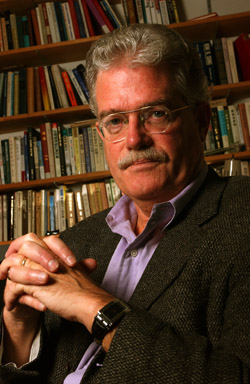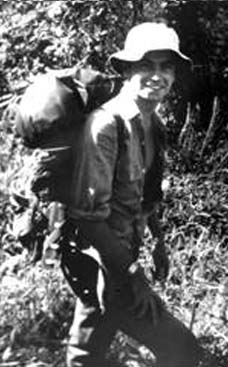
"The 20th century had a curious and mostly unnoticed effect on Northeast Asia: it reversed a relationship between China, Korea and Japan that dated back to antiquity. When Westerners "discovered" East Asia, these three nations arrayed themselves in a loose hierarchy: China at the top, Korea in the middle, Japan not at the bottom but somewhere beyond Korea - less close to China, less firmly in the realm of East Asian civilization. This pattern of international relations in Northeast Asia was the past and present for as long as anyone could remember, predating recorded history. But it was not to be the future. In the brief period from the Meiji Restoration in 1868 to the end of the Sino-Japanese War in 1895, Japan succeeded in establishing itself as East Asia's leader; soon Korea was colonized and the last Chinese dynasty collapsed. What caused this reversal? More than anything else, it was Japan's ability to industrialize more rapidly than its neighbors, and then to subject those same neighbors to its imperial strategies (rather than putting colonies in, say, Africa)." Bruce Cumings served as a Peace Corps Volunteer in Korea, has written three books about that country, and is currently a history professor at the University of Chicago.
Bruce Cumings writes: The real achievement of this summit was to kill three birds with one stone
Reconnecting sinews of N.E. Asian political economy
Date: November 18, 2007
By Bruce Cumings
Chairman of the Historty Department
At the University of Chicago
President Roh (L) and Chairman Kim exchange documents after signing summit agreements in Pyongyang on Oct. 4.The recent summit between President Roh Moo-hyun and Chairman Kim Jong-il came about primarily because of the warming of relations between Washington and Pyongyang, exemplified by the Feb. 13, 2007 agreement on denuclearization, and the current, rapid implementation of its provisions after months of delay. But the summit had its biggest impact in the importance and significance of the economic deals that the two leaders concluded -something that most commentary on the summit seems to have missed.
President Roh's pet project has been to fashion the Korean Peninsula into the "hub" of Northeast Asia, and in pursuing that he wants to begin to rase two lines that have blocked the emergence of a robust economy in the middle-western part of the Korean Peninsula, thus to serve as a bridge between Japan and China: the 38th parallel, which runs right through the heart of the ancient Goryo capital of Gaeseong, and the DMZ, which excludes the port of Haeju and its surrounding area from economic interaction with its near Korean neighbors, Seoul and Incheon (not to mention with China across the Yellow Sea). As it happens, history offers much testimony to the logic of Roh's plans because they continue a regional pattern that dates back almost a century: Korea as the hub or bridge between Japan and China.
The 20th century had a curious and mostly unnoticed effect on Northeast Asia: it reversed a relationship between China, Korea and Japan that dated back to antiquity. When Westerners "discovered" East Asia, these three nations arrayed themselves in a loose hierarchy: China at the top, Korea in the middle, Japan not at the bottom but somewhere beyond Korea - less close to China, less firmly in the realm of East Asian civilization. This pattern of international relations in Northeast Asia was the past and present for as long as anyone could remember, predating recorded history. But it was not to be the future. In the brief period from the Meiji Restoration in 1868 to the end of the Sino-Japanese War in 1895, Japan succeeded in establishing itself as East Asia's leader; soon Korea was colonized and the last Chinese dynasty collapsed. What caused this reversal? More than anything else, it was Japan's ability to industrialize more rapidly than its neighbors, and then to subject those same neighbors to its imperial strategies (rather than putting colonies in, say, Africa).
Defeat in World War II did little to change this pattern, because (with much American help) Japan was able to reindustrialize quickly, while Korea and China were divided and war-torn, and the communist sides were blockaded and cut off from interaction with the world economy. The Cold War thoroughly divided the region. But American planners sought to take advantage of this historic hierarchy through Secretary of State Dean Acheson's "great crescent" strategy that would revive Japanese industry, reintroduce it economically to its former colonies, and link it to oceans of Middle Eastern oil then sloshing into the world market (from fields mostly controlled by the U.S. and its allies). Japan could resume its economic prowess while remaining dependent on the U.S. for oil and for defense. This strategy worked brilliantly, as Japan, South Korea and Taiwan soon sported growth rates that were the envy of the world. So when the Cold War ended, the (truncated) Northeast Asian hierarchy established a century before still remained. Today it still exists, but it is quickly eroding and may soon be reversed.
But what is the stuff of this hierarchy? And what constitutes "Northeast Asia?" That Asia has a region called Southeast Asia is no surprise, but until the 1980s few recognized a counterpart called Northeast Asia. I have used this term to mean a particular political economy that includes Japan, Korea, Taiwan, and those parts of China intensely involved with the world market. It is a sector or space within the world economy, having Japan as its regional core. Japan is the second-largest economy in the world and has been the technological leader of this region for about 130 years; China was for most of that time a periphery or hinterland offering raw materials, labor, or markets to Japanese enterprises.
Korea was once again back somewhere in the middle between the other two nations from the 1920s onward, exporting rice to Japan and then, through the workings of the product cycle of industrial rise, decline, and obsolescence, becoming the locus of new heavy industries in the 1930s (chemicals, steel), and then declining Japanese industries like textiles in the 1940s, light electronics in the 1960s, or steel and shipbuilding in the 1970s, which would typically marry Korean labor to Japanese technology for export to the world market. Japan benefited from the weaknesses exemplified by Korea's division, the exclusion from world markets of China and North Korea, and the failed socialist attempts at self-reliant development in those two communist countries.
China's double-digit growth since its turn outward in 1979, South Korea's technological and industrial breakthroughs making it world-competitive in steel, ships, autos and now high technology, the collapse of nearly all Cold War barriers to economic exchange, and Japan's stagnation over the past nearly twenty years have sown the seeds of a reversal of the Northeast Asian hierarchy. It will, of course, be a long time before China matches Japan at anything besides absolute GNP figures; its technology is Third World by comparison. Korea, however, competes head-to-head with Japan and the U.S. in many lucrative industrial and high-tech fields. By bringing North Korea into that equation, Seoul can gain tremendous comparative advantages in labor (at a fraction even of China's low wages), product cycle rationalities (marrying North Korean labor to declining chaebol enterprises), geographic contiguity (Seoul-Incheon-Gaeseong as a vibrant core of the peninsular economy), and an end to the threat of conflict and actual skirmishes in the West Sea, which has been detrimental both to the South and the North.
The summit agreements seek to open up this western ocean presumably demarcated by a watery (and unilateral) extension of the DMZ into the Yellow Sea. That will help South and North to damp down naval clashes and ramp up crabbing harvests. Much more important, though, is to link the populous, productive, highly centralized city-state called Seoul and the hugely successful new airport at Incheon, with the growing export zone in Gaeseong, the nearby port of Haeju and the Ongjin Peninsula, and the historically wealthy Hwanghae region. Before Korea's division this region to the west between Pyongyang and Seoul was the most dynamic economic area of northern Korea (whereas the eastern reaches of the DMZ run into mountains and places always remote from Seoul). As a fine dissertation done at the University of Chicago by Michael D. Shin (who now teaches at Cornell) demonstrates, in the 1920s a budding Korean elite of moderate nationalists, cultural figures, entrepreneurs, educators and Christians formed a nascent middle class with great influence in this same region - which also happened to be agriculturally wealthy, raising the only double-cropped rice above the 38th parallel.
After the summit agreements we can envision for the first time since 1945 a regional economy developing between Pyongyang and Seoul that would be a real powerhouse, and a bridge between Japan and China giving Korea much leverage and benefit. This can also develop quite nicely without threatening Kim Jong-il's rule, because the transformation will bring new wealth to North Korea and can be confined to this region (as one vast "export zone"). The analogy with China's opening is direct, too, because exporting developed there in the same coastal Treaty Ports and capitalist enclaves that Mao always denounced.
Russian official introduces about Trans-Siberian Railway to the participants of a Korea-Russia railway cooperation seminar held at Plaza Hotel, Seoul, in January 2001.Likewise, if the train lines really are hooked up from Seoul to Uiju (as the summit projected) a vast caravan of containers can transit through the North and on to China, Russia and all the way to Europe. This is a very cheap kind of transport compared to the much slower sea routes, and here is one "containment policy" that won't threaten Pyongyang - because people won't be getting off and the North will make a lot of money in freight fees. Most people do not realize how absolutely critical container shipping has been to East Asian growth since the 1960s, but you can learn about it in Marc Levinson's excellent new book, The Box. Americans see Hanjin containers moving down the tracks all the time; I often wonder if they know where they come from. Perhaps North Koreans will soon see those same boxes moving across their territory by the thousands.
The real achievement of this summit was to kill three birds with one stone: to engage the North in economic exchange that will help its economy grow, feed its people and continue to erode its old system; to finally begin the erasure of the DMZ and the 38th parallel, at least in the west; and to re-insert the DPRK's southwest back into its modern regional habitat in the Northeast Asian political economy. Everything depends on the implementation, of course, but it may not be long before South Korean businessmen revisit the Ongjin Peninsula (which sits below the 38th parallel) and travelers take fast (and no doubt sealed) through trains from Seoul to Uiju, and thence to the rest of the Eurasian continent.













